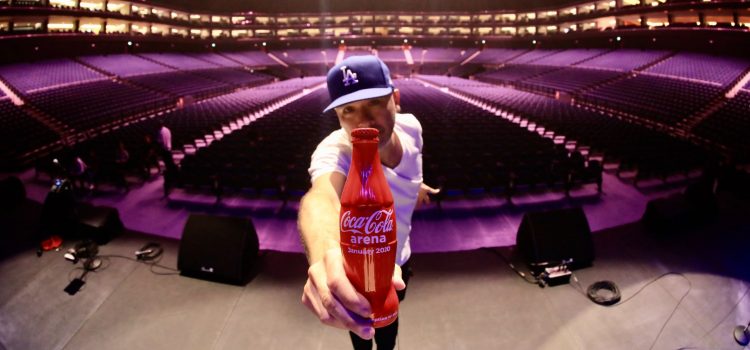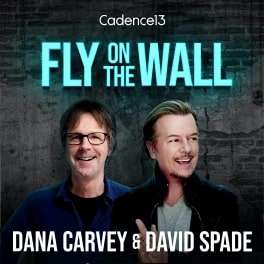

This article is an excerpt from the Shortform guide to "Fly on the Wall". Shortform has the world's best summaries and analyses of books, podcasts, and more.
Like this article? Sign up for a free trial here.
How did Netflix help Jo Koy make it big in the comedy industry? How popular is Koy among famous comedians?
As a comedian, Koy has sold out arenas in multiple cities consistently. He talks about how he got to the point of performing in large arenas on the Fly on the Wall podcast with David Spade and Dana Carvey.
Keep reading to learn more about how Jo Koy’s stand-up career blew up.
Jo Koy’s Innovative Solutions for Turning Rejection Into Opportunity
After receiving a rejection from Netflix, Koy displayed tenacity by investing his own savings to launch his large-scale independent production.
Ensuring his special felt like a big-budget production, he effectively turned his rejection into an opportunity. This resulted in greater revenue and control over his creative output.
The Move to Larger Venues
Jo Koy’s stand-up comedy accomplishments include consistently attracting large audiences and filling large arenas. His rise in demand saw him shattering records with a remarkable performance at Improv, selling out 30 shows consecutively in certain cities.
Besides Koy’s impressive arena-filled performances, Spade has expressed his intent to initiate a theater tour. This was equally inspired by other popular comedians such as Nikki Glaser, Theo Von, and Bill Burr who have adopted similar strategies.
Inside the Comedy Industry
In the ever-evolving world of comedy, resilience, and perseverance are key traits for comedians seeking recognition and success. The challenges they face in gaining traction in the industry have been further complicated by the shifting dynamics of entertainment platforms. Traditionally, comedians aimed to secure specials or series on television networks or cable channels. However, with the rise of streaming platforms like Netflix, a new avenue has emerged for reaching a global audience with comedy specials. These platforms have become significant players in the industry, offering opportunities for exposure and distribution that were previously limited.
One recent example highlighting the importance of taking control of one’s creative output is Jo Koy’s journey. Despite facing rejection from Netflix, he made a bold decision to invest his own savings into producing his special independently. This move paid off as he attracted large audiences and filled arenas with his performances, including record-breaking shows at Improv. Koy’s success not only showcases his resilience but also underscores the shift towards larger venues and arena-filled performances in today’s comedy world.
Another theme that emerges is how successful comedians inspire each other within their community. David Spade recently announced his intent to embark on a theater tour inspired by fellow comedians who have adopted similar strategies. This highlights how influential figures within the industry can motivate others to explore independent avenues rather than relying solely on established platforms or networks.
The impact of streaming platforms like Netflix cannot be understated when discussing recent events in comedy history. These platforms offer comedians an alternative route to fame by providing them with global exposure through their vast user base. Additionally, social media has played a pivotal role in reshaping the landscape of stand-up comedy by allowing performers to build fan bases directly and gain exposure without traditional gatekeepers.

———End of Preview———
Like what you just read? Read the rest of the world's best guides to Fly on the Wall" at Shortform.
Here's what you'll find in our full Fly on the Wall episode summaries:
- Insights into the professional lives of celebrities and public figures
- The reality of working in the entertainment industry
- The hosts’ views on current affairs






